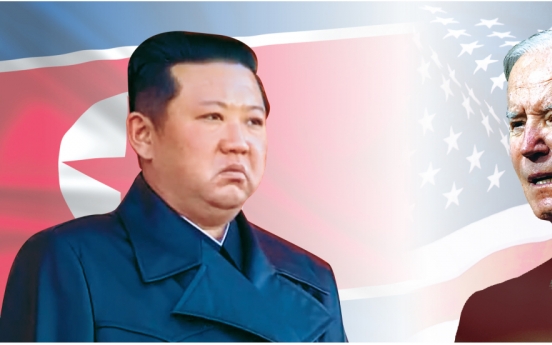This article was originally published by The Korean Herald.
Premature declaration would have adverse security ramifications for alliance strength, UNC status
Will an end-of-war declaration bring us one step closer to a peaceful and nuclear-free Korean Peninsula?
In Washington, there is a divergence of opinion on the utility of an end-of-war declaration as a means to reboot nuclear diplomacy with North Korea.
But the majority sees more risk than opportunity, with adverse ramifications for the security of the Korean Peninsula, the South Korea-US alliance, American deterrence and the status of the United Nations Command.
There is also concern that a symbolic and nonbinding end-of-war declaration would legitimize North Korea’s possession of nuclear weapons.
Proponents, on the other hand, underscore that a declaration is the right way to widen the window of opportunity for diplomacy with North Korea and build confidence in the diplomatic solution to North Korean threats.
Particularly, an end-of-war declaration is a risk worth taking in view of the failures in previous risk-averse policies on North Korea, which have counted on deterrence, isolation, and pressure.
Security ramifications
Adverse consequences for South Korea-US alliance
US-based experts say that an end-of-war declaration would not guarantee that Pyongyang would reduce existential and direct military threats against the South and make progress toward denuclearization. But declaring an end to the Korean War would create a false sense of security.
“A simple, nonbinding declaration would also do nothing to address the real threat to peace, which is the North Korean threat to the South,” said Bruce Klingner, a senior research fellow at the Heritage Foundation.
“While the declaration would not have legal ramifications, it would create the false impression of a reduction of the threat to peace.”
A nonbinding declaration would provide a pretext for North Korea to undermine the rationale for the status of the United Nations Command and the Combined Forces Command, as well as the stationing of the US Forces Korea.
Pyongyang would ratchet up its rhetoric to withdraw US forces in Korea, terminate joint military exercises and the US extended deterrence guarantee, and abolish the 1953 South Korea-US Mutual Defense Treaty that legitimizes the stationing of the USFK.
“It would be used by North Korea, China and some in South Korea to advocate for reductions of the South Korean and US force postures and deterrence capabilities while not addressing the North Korean military forces,” Klingner said.
US experts also warned that Beijing would use the declaration as a means to undermine the South Korea-US alliance.
“China sees this action as a way to drive a wedge in the ROK-US alliance and create conditions favorable to North Korea,” said David Maxwell, a senior fellow at the Foundation for Defense of Democracies and a retired US Army Special Forces colonel.
Endangering UNC status, armistice
In particular, North Korea could ramp up its argument for the disbandment of the UNC, whose major mission is to implement UN Security Council Resolution 84 by enforcing the 1953 Armistice Agreement and to provide international legitimacy to the associated activities and presence.
The UNC was established pursuant to UN Security Council Resolutions 82, 83 and 84 in July 1950, following the UN’s recognition of North Korean aggression against South Korea. The resolutions authorized the use of force in Korea, activated the UNC and designated the US as the leader of the UNC.
This is the first of a three-part series shedding light on Washington’s view of an end-of-war declaration.
Ji Da-gyum is a reporter for The Korean Herald.
To read more, please click here.


